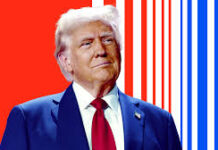The current economic landscape, influenced by President Donald Trump’s policies, has raised concerns about the potential for a significant stock market downturn, reminiscent of the 1920s. This essay will explore whether Trump’s actions could lead to a stock market crash similar to the Great Crash of 1929. We will examine the historical context of the 1929 crash, Trump’s economic policies, and their impact on the stock market.
The stock market crash of 1929, also known as Black Tuesday, occurred on October 29, 1929. It marked the beginning of the Great Depression, a period of severe economic downturn that lasted over a decade. Several factors contributed to this crash:
- : The economy experienced a mismatch between supply and demand, leading to unsold goods and reduced consumer spending.
- : Many investors bought stocks on margin, meaning they borrowed money to purchase stocks, hoping to sell them at higher prices. When stock prices began to fall, these investors were unable to pay back their loans, exacerbating the crisis.
- : Banks had invested heavily in the stock market and had loaned money to speculators. When the market crashed, banks found themselves with large amounts of worthless stocks and unpaid loans, leading to widespread bank failures.
- : The passage of the Smoot-Hawley Tariff Act in 1930, which raised tariffs on imported goods, is often cited as a factor that worsened the economic situation by reducing international trade.
President Trump has implemented several economic policies that could impact the stock market:
- : Trump has imposed tariffs on various countries, including China, Canada, and Mexico. These tariffs have led to retaliatory measures from affected nations, potentially disrupting global supply chains and increasing costs for U.S. businesses12.
- : Trump has pursued deregulation across several sectors, aiming to boost economic growth. However, this could also increase risk and instability in financial markets3.
- : Trump’s tax cuts have provided short-term economic stimulus but may lead to increased national debt and inflationary pressures over time3.
Trump’s policies have introduced significant uncertainty into the stock market:
- : Recent announcements of tariffs have led to sharp declines in stock indices like the Dow Jones and S&P 500. The unpredictability of Trump’s actions contributes to market volatility24.
- : The ongoing trade disputes have affected investor confidence, particularly in sectors heavily reliant on international trade, such as technology and manufacturing4.
- : While the U.S. economy has shown resilience, indicators like the yield curve inversion have raised concerns about potential recession risks4.
While there are similarities between the economic conditions of the 1920s and today, there are also significant differences:
- : The financial system is more regulated today, with measures like the Dodd-Frank Act aimed at preventing bank failures and stabilizing markets.
- : Central banks, particularly the Federal Reserve, have more tools and experience in managing economic downturns compared to the 1920s.
- : The global economy is more interconnected, which can both amplify and mitigate economic shocks.
Conclusion
While Trump’s policies have increased economic uncertainty and volatility, it is unlikely that they will lead to a stock market crash identical to the one in 1929. The current financial system is more robust, and regulatory measures are in place to mitigate extreme downturns. However, the ongoing trade tensions and unpredictable policy shifts could still lead to significant economic challenges. The key to avoiding a major crisis lies in managing these risks through careful policy adjustments and maintaining international economic cooperation.
In summary, while a 1920s-like stock market crash is improbable, Trump’s policies have the potential to cause significant economic disruption. The path forward will depend on how these policies evolve and how effectively they are managed to mitigate risks and stabilize the global economy.
By Jane Walker
Citations:
- https://taxfoundation.org/
research/all/federal/trump- tariffs-trade-war/ - https://www.cnn.com/2025/03/
05/business/wall-street-trump- tariffs-nightcap/index.html - https://www.chathamhouse.org/
2025/01/biggest-economic-risk- donald-trumps-presidency-loss- confidence-us-governance - https://theconversation.com/
how-trumps-second-term-might- affect-the-market-and-your- finances-248519 - https://ustr.gov/sites/
default/files/files/reports/ 2025/President%20Trump’s% 202025%20Trade%20Policy% 20Agenda.pdf - https://www.nytimes.com/
interactive/2025/03/01/ business/trump-stock-market. html - https://www.cnn.com/2025/03/
06/politics/trump-canada- mexico-tariffs-whiplash- analysis/index.html - https://www.project-syndicate.
org/commentary/trump-false- claims-of-disastrous-us- economy-could-create-crisis- by-stephen-s-roach-2025-02












